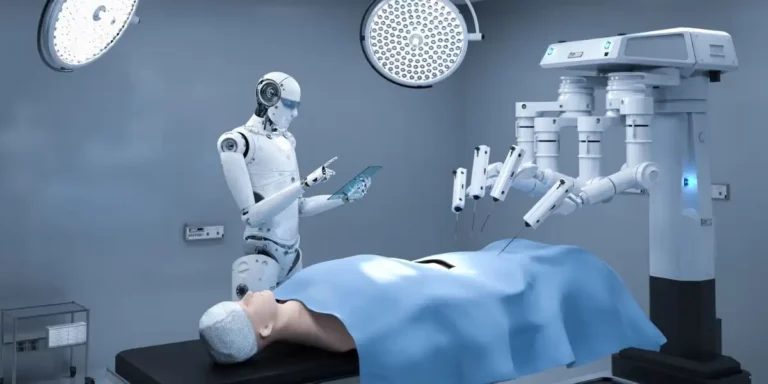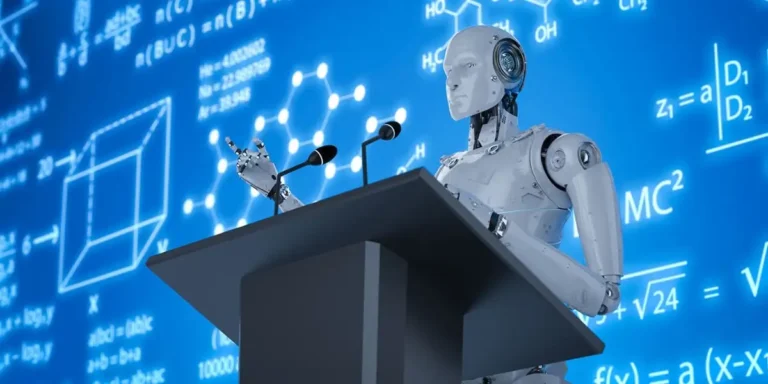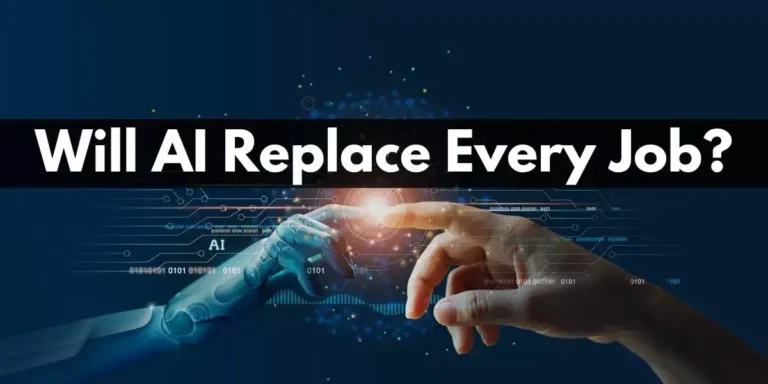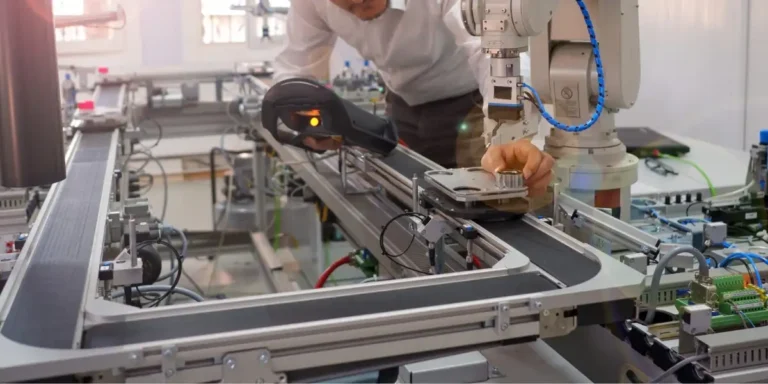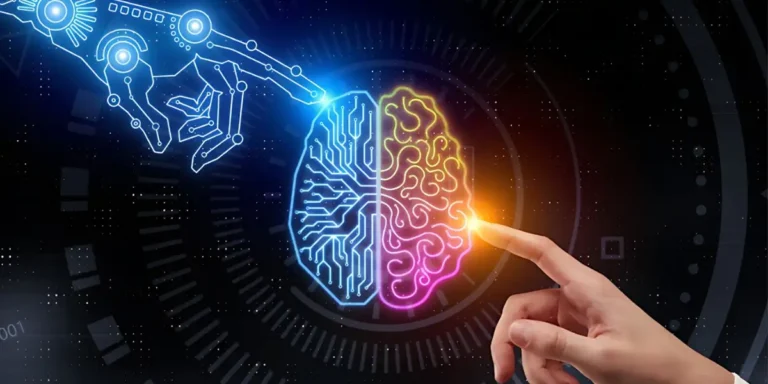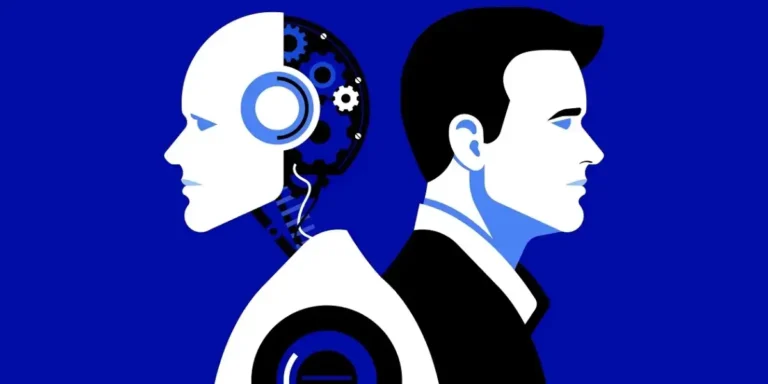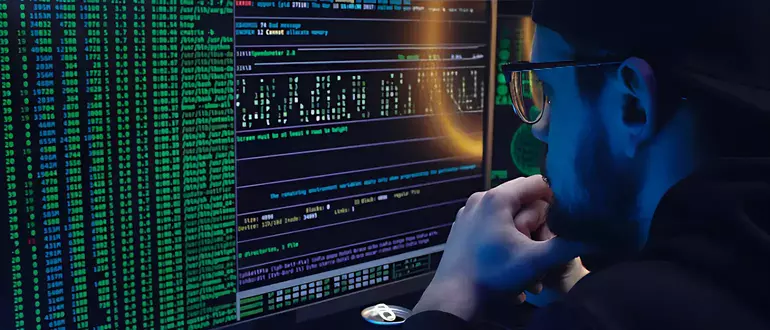
As artificial intelligence continues to advance at a rapid pace, many are wondering if it will eventually replace human programmers.
With the emergence of AI-powered code generators and other automation tools, whether programmers will become obsolete is a valid question.
In this post, we’ll explore the pros and limitations of AI, the potential impact of AI on the programming industry, and consider the skills a programmer should learn to stay relevant in the era of AI.
Will AI Replace Programmers?
AI is unlikely to replace programmers completely because it currently lacks the creativity and problem-solving skills that humans possess.
However, AI can assist developers in automating certain tasks and providing insights to aid decision-making.
Programmers should focus on developing skills that complement AI and learn to integrate AI tools into their workflow to remain valuable in the growing demand for AI and machine learning.
What Types Of Programming Jobs Will Be Replaced By AI In The Near Future?
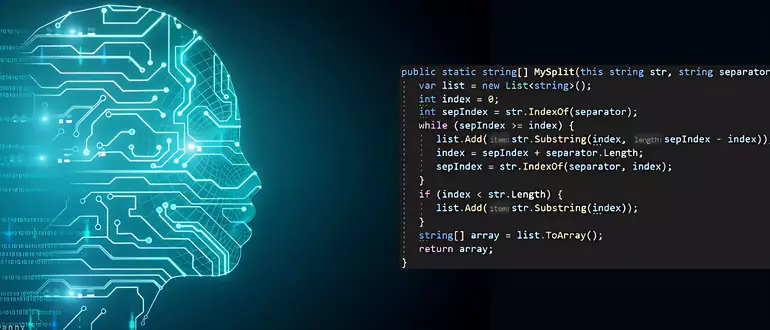
Basic Programming Jobs
As AI becomes more advanced, it is likely to take over some of the basic programming jobs, such as those involving repetitive tasks like data entry, debugging, and testing.
These types of programming jobs are usually time-consuming and require a lot of attention to detail, making them ideal for AI automation.
Web Design and Development
Web design and development may also be impacted by the rise of AI. AI-powered tools can now create websites, design templates, and even write code.
This technology can make the process of building a website much faster and more efficient, leaving less work for human developers.
Mobile App Development
Mobile app development is another area where AI is making inroads.
With AI-powered tools, it is now possible to build apps that can recognize and respond to user input, making the development process faster and more efficient.
This technology can help developers to build more complex and sophisticated apps with fewer resources.
Data Analysis
Data analysis is another field that is likely to be impacted by AI. With the ability to process and analyze vast amounts of data, AI can help to automate data analysis tasks such as data cleaning, data mining, and data visualization.
Quality Assurance
Quality assurance is an essential aspect of software development, and AI can play a significant role in this field. With AI-powered testing tools, it is possible to automate the process of testing software, making it more efficient and reliable.
This technology can help to identify bugs and errors early in the development process, reducing the risk of costly mistakes later on.
Code testing and debugging
Testing and debugging are critical steps in the software development process. However, they are time-consuming and require a lot of manual effort.
AI-powered tools can analyze code and identify errors and potential issues much faster than humans.
This can save developers significant time and effort, making it easier to develop high-quality software quickly.
Routine coding tasks
AI is also capable of performing routine coding tasks, such as writing simple scripts and performing basic coding operations.
While these tasks may seem small, they can be time-consuming and take away from more complex programming tasks.
By automating routine coding tasks, developers can focus on more complex tasks that require human intervention.
Algorithmic trading
Algorithmic trading involves using mathematical models to make investment decisions.
While traditional trading methods rely on human traders to make decisions based on intuition and experience.
AI-powered algorithms can analyze large volumes of data and make decisions based on statistical models. This makes algorithmic trading faster, more efficient, and less prone to human error.
How Will AI Impact The Programming Industry?
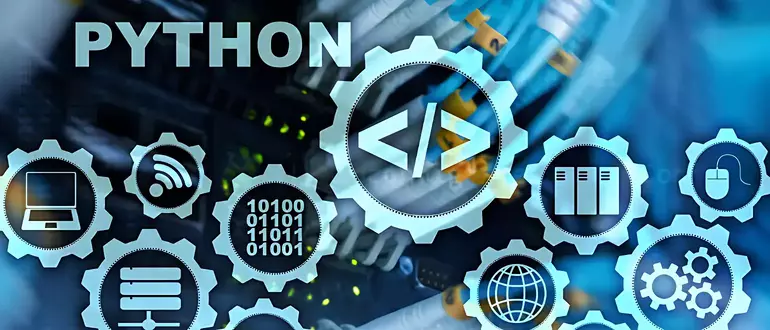
Automated Code Writing
AI is revolutionizing programming by automating the process of code writing.
AI algorithms are being developed that can write entire programs on their own, which will significantly reduce the need for human programmers.
These algorithms are capable of analyzing large data sets, identifying patterns, and creating code based on the information they have gathered.
This automated code-writing process will save programmers time and allow them to focus on more complex programming tasks.
Improved Accuracy and Efficiency
AI algorithms are also being developed that can improve the accuracy and efficiency of programming tasks.
These algorithms can identify errors in code and suggest corrections, which will reduce the time and resources needed for manual debugging.
Additionally, AI can assist in optimizing code for better performance, which will improve the overall efficiency of programs.
Enhanced User Experience
AI is expected to enhance the user experience of software and applications significantly.
By analyzing user data, AI algorithms can identify patterns in user behavior and preferences.
This information can be used to improve the functionality and usability of software, making it more user-friendly and intuitive.
Increased Job Opportunities
While some fear that AI will lead to job loss in the programming industry, the opposite is actually true.
As AI becomes more integrated into programming, there will be a greater need for programmers with expertise in AI development and implementation.
Additionally, the automation of certain programming tasks will free up time for programmers to work on more complex projects, creating new job opportunities in specialized fields.
What Skills Should Programmers Need to Learn to Stay Relevant In An AI-Driven World?
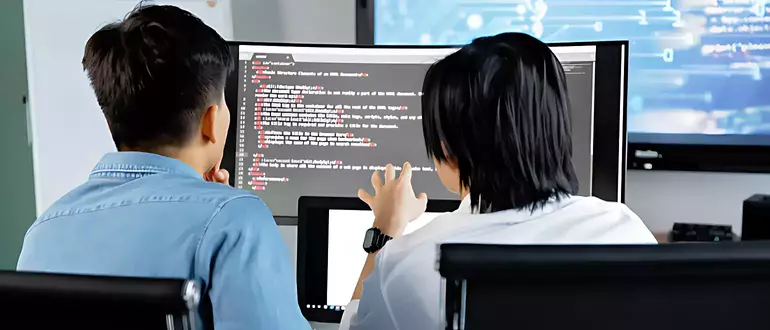
Data Science and Analysis Skills
With the rise of AI, data science and analysis skills have become critical for programmers.
Data science involves analyzing and extracting insights from complex data sets using statistical and machine-learning techniques.
Programmers need to have a deep understanding of data science concepts, including data mining, data preprocessing, and statistical modeling, to develop robust AI applications.
Proficiency in AI Tools and Frameworks
To build AI-driven applications, programmers need to have a strong command of AI tools and frameworks.
These include libraries like TensorFlow, Keras, and PyTorch, which enable the development of neural networks and deep learning algorithms.
By staying up-to-date on the latest AI tools and frameworks, programmers can design and develop applications that leverage the power of AI to provide more significant value to end users.
Ability to Work with Unstructured Data
AI-driven applications often involve working with unstructured data such as images, text, and voice. As such, programmers need to have the skills to work with this type of data effectively.
This includes expertise in natural language processing, computer vision, and speech recognition, which are critical for developing applications that can interpret and analyze unstructured data.
Strong Problem-Solving Skills
AI-driven applications often involve solving complex problems that require creative solutions. As such, programmers need to have strong problem-solving skills.
This includes the ability to break down complex problems into smaller, more manageable tasks and the ability to think outside the box to develop innovative solutions.
Knowledge of Agile Development Methodologies
Agile development methodologies are essential for developing AI-driven applications.
As such, programmers need to have a strong understanding of agile development methodologies to be successful in an AI-driven world.
Continual Learning and Adaptability
Finally, perhaps the most critical skill for programmers to develop is continual learning and adaptability.
As AI continues to evolve and disrupt traditional programming paradigms, programmers need to be able to adapt quickly to new technologies and tools.
This requires a growth mindset and a willingness to learn and experiment with new ideas and concepts.
What Are The Benefits Of AI In Programming?
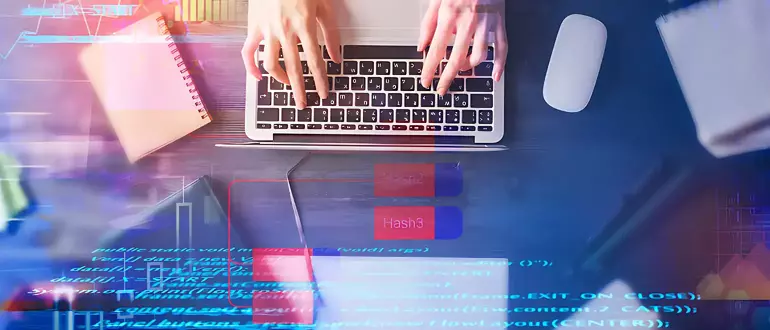
Enhanced Efficiency and Speed
One of the most significant benefits of AI in programming is the enhanced efficiency and speed it brings to the process.
With AI, programmers can automate repetitive tasks such as debugging, testing, and code optimization.
This not only saves time but also helps programmers to focus on more complex tasks that require human attention.
Improved Accuracy
AI can also improve the accuracy of programming tasks. For example, it can help detect errors in code that might be missed by human programmers.
It can also optimize code to reduce errors and improve performance.
Facilitates Predictive Analysis
AI algorithms can analyze large amounts of data and make predictions based on the patterns and trends they identify.
In programming, this can help in predicting the likelihood of errors or bugs occurring in the code.
This can be especially helpful in large-scale projects where identifying potential errors early on can save significant amounts of time and resources.
Enhances Personalization and User Experience
AI can be used to personalize user experiences in programming. For example, it can help in creating user interfaces that are tailored to individual users’ needs and preferences.
Simplifies Complex Tasks
AI can also help to simplify complex programming tasks.
For instance, it can help in natural language processing, which allows programmers to interact with code using natural language commands.
This can help to reduce the learning curve for new programmers and make programming more accessible to non-experts.
Supports Continuous Learning and Improvement
Finally, AI can help to support continuous learning and improvement in programming.
By analyzing data and identifying patterns, AI can help programmers to improve their skills and knowledge over time.
What Are The Limitations Of AI In Programming?
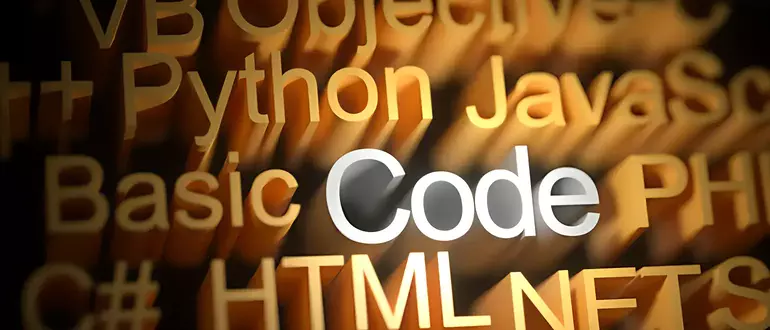
Lack of Creativity and Intuition
One of the biggest limitations of AI in programming is the lack of creativity and intuition.
While AI can learn from vast amounts of data and make predictions based on that data, it is not capable of generating truly original ideas or thinking outside the box.
This means that while AI can be incredibly useful in certain areas of programming, it cannot replace the creativity and intuition of human programmers.
Limited Contextual Understanding
Another limitation of AI in programming is its limited contextual understanding.
While AI can process large amounts of data and make predictions based on that data, it is not always able to understand the context in which that data exists.
This means that AI may make incorrect predictions or decisions based on incomplete or inaccurate data.
Dependence on Training Data
AI algorithms are only as good as the data they are trained on.
This means that if the training data is biased or incomplete, the AI may make incorrect predictions or decisions.
Additionally, if the AI encounters data that is significantly different from the data it was trained on, it may not be able to make accurate predictions or decisions.
Lack of Common Sense
Despite advances in AI technology, AI still lacks common sense. This means that AI may make decisions or predictions that seem illogical or unreasonable to humans.
For example, an AI algorithm may predict that a person is happy based on their facial expression, even if that person is actually angry or upset.
Limited Ability to Learn
While AI can learn from vast amounts of data, its ability to learn is still limited.
This means that if the AI encounters a new situation or problem that it has not been trained on, it may not be able to make accurate predictions or decisions.
Additionally, if the AI encounters a situation that is significantly different from the situations it has been trained, it may not be able to adapt and learn from that new situation.
FAQs
What tasks can AI currently perform that were previously only done by programmers?
AI can automate many tasks that were previously done manually by programmers, such as code optimization and error detection.
It can also assist with software testing, generate code based on user input, and even create new algorithms.
Can AI Create Its Own Programs?
Yes, AI is capable of generating its own programs, but the quality of the programs produced by AI is still limited.
While AI can generate code, it typically requires human oversight to ensure the code is correct and efficient.
Will AI Make Programming Jobs Obsolete?
While AI has the potential to automate many programming tasks, it is unlikely to make programming jobs completely obsolete.
Programmers are still needed to design, implement, and maintain software systems and to work on more complex problems that require creativity and critical thinking.
Can AI Improve The Quality Of Code?
Yes, AI can improve the quality of code by identifying potential bugs and vulnerabilities, optimizing code performance, and even generating code based on user input.
However, it is important to note that AI is not a silver bullet and still requires human oversight to ensure code is secure and functional.
How Can Programmers Adapt To The Rise Of AI?
Programmers can adapt to the rise of AI by investing in new skills, staying up-to-date on industry trends, and embracing the use of AI tools and techniques in their work.
They can also focus on developing skills that are less likely to be automated, such as problem-solving, collaboration, and creativity.
Conclusion
While AI-powered coding assistants like GitHub Copilot and Replit Ghostwriter are changing how programmers do their jobs, experts say AI won’t replace programmers entirely.
Code-generating AI will work as an assistant for developers, helping them understand their options and write reliable code.
AI is still far from being able to replace human programmers, but it could write code one day, although it will take time before it can create actual, production-worthy code that spans more than a few lines.
